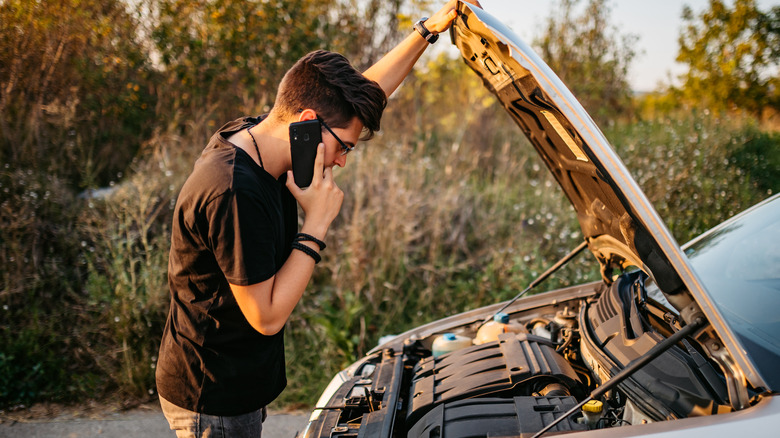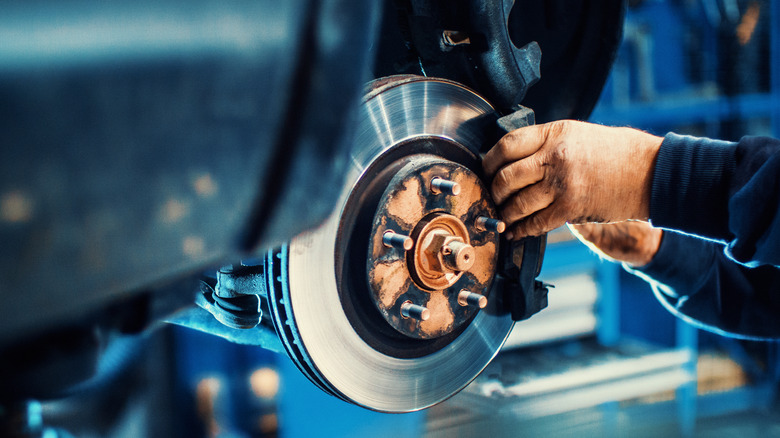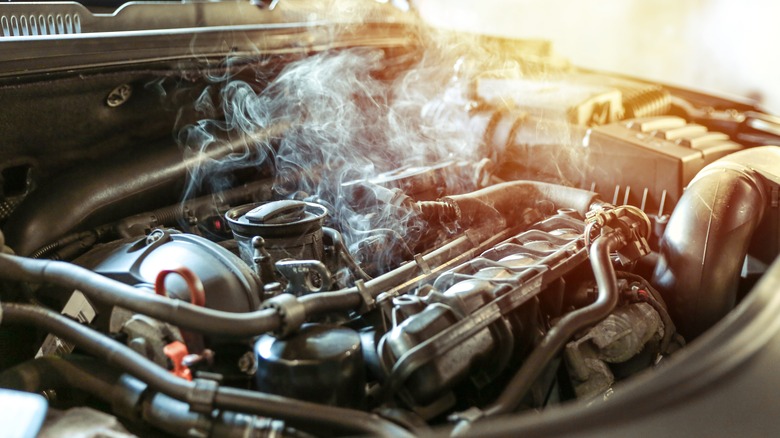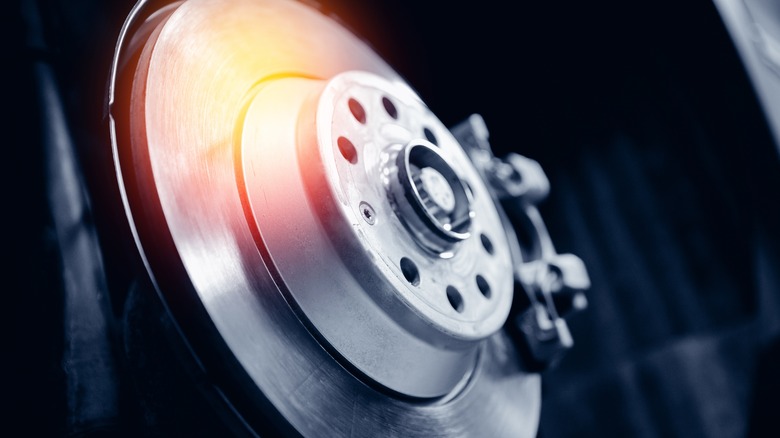The Worst Sounds Your Car Can Make, And What They Each Mean
Cars are complex machines, and as a result, it's not always evident what's going on under the hood — especially if something is wrong. With all the various components of your car working in harmony, your car shouldn't make any strange noises. However, everyone who drives regularly has felt the dread that comes on when your car emits an unholy cacophony. Depending on the noise, it could be dismal news for both your car and your wallet.
Fortunately, the noise can indicate almost exactly what's wrong with your car. With a keen ear, you can often diagnose and isolate major problems with your car before you take it to a mechanic or try to fix it yourself. Being more informed about how your car operates is never a bad thing, either. Keep an ear out for your car making wacky noises — it may be nothing to worry about, or it could mean there's a serious problem.
Grinding from the wheels
If your car is making a grinding noise, especially when slowing down, chances are, your brakes are going to need to be replaced. Modern disc brakes mostly consist of three parts — a rotor, a caliper, and brake pads. The rotor is connected to the actual wheel of your car, and when you apply pressure on the brake pedal, the caliper presses brake pads into the rotor, applying friction to slow it down.
When either the brake pads or rotor are worn out, it can result in a grinding noise when braking. Right out of the box, both the brake pad and rotor are very flat, which allows for more surface area and better braking. As brakes wear, the repeated stresses and heat of braking (especially hard braking) wear down the brake pads, and do a number on the rotor itself.
Initially, worn out brakes may produce a squealing or squeaking noise. If it isn't addressed in a timely matter, that squeal can evolve into a pretty heinous grinding noise. If you feel adventurous enough, replacing disc brakes yourself is a fairly straightforward process on most cars. Sites like YouTube and automotive enthusiast forums are your best friend. For older cars, there are likely several repair guides online, too.
Clunking and clanging from the engine bay
Internal combustion engines, as ubiquitous as they are, operate on several thousand explosions per minute. The inside of your car's engine is a pretty hostile place, to put it lightly. Occasionally, parts inside the engine bay or individual cylinders don't operate as normal — and either crack under the stress, or just outright shatter.
While a piston deciding to loose itself from its cylindrical prison doesn't happen that often in normal driving scenarios, a piston — and its subsequent connecting rod — can go haywire and make all kinds of discouraging noises before failing entirely. This is where the term "rod-knock" comes from. Unattended to, it can sound like your engine is full of marbles. It's not a pleasant sound.
There is a litany of causes for rod-knock; ranging from not enough oil, to issues with the connecting rod's bearing on the crank shaft. Regardless of what the actual cause is, when your pistons start behaving abnormally and making scary noises, your car likely needs immediate attention if the sounds don't subside.
If you catch it early, it may just result in replacing piston rings and bearings. If you let it go on for a long time, your engine can possibly trash itself, prompting an entire rebuild. If your car is one of your prized possessions, a rebuild may be worth it. If it's just a beater commuter car, it might be time to look for another car.
Whirring from the wheels
If you're ever on the highway and you start to hear a speed-sensitive whirring or almost a whistling noise coming from one of your wheels, there's a possibility that one of your wheel bearings is starting to go. You can easily check this by jacking up your car and jostling the wheels.
If the wheel is solid and doesn't move around laterally (other than spinning forward and backward normally), then you're likely in the clear as far as bearings are concerned. If it does, however, jostle around, then you will need to have your wheel bearings replaced.
Unless you count yourself as mechanically confident and want to replace the bearings, grease, and all other related assemblies yourself, you likely need to replace the entire wheel hub of your car if you detect your bearings are about to give up the ghost. To find appropriate wheel hubs for your car, check out the manufacturer's parts website.
If that's outside of your budget (original manufacturer's parts lean toward the pricey side), sites like RockAuto or local parts stores are your best friend. Much like replacing your brakes, YouTube will be key, as every car is a little bit different and the job will have its own idiosyncrasies when it comes to wheel bearings.



